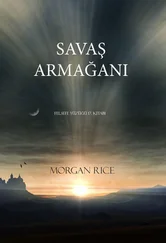“You can experience rain or snow right here on the ship,” I told her. “In the gardens, in the ag fields.”
She shook her head. “It’s not the same.”
“No,” I agreed.
“Of course, the last time we made landfall was something of a debacle. I never did completely understand what went wrong, though regrettably the bishop had something to do with it.”
I was surprised she was so forthcoming about the role her superior played in that fiasco.
“The language difficulties were part of the problem,” she continued. “So strange. We spoke the same language as those people, that was clear, and yet our individual versions of it had diverged so greatly over time that often it was like two different languages.” She paused, lost in her thoughts. “As I said, the bishop must bear some of the responsibility for the trouble.” She paused again, and I wondered if she now regretted admitting her feelings about the bishop. But she went on. “He does not seem to understand that you cannot force belief. You cannot create faith in others through force of will.”
“We’re not likely to have a repeat of what happened there,” I said. “Not this time, anyway.”
“No. From what I understand, it isn’t likely that we will find anyone, is it?”
“I suppose not. No one alive.”
“That’s too bad.”
“Why?”
She shrugged. “We are too isolated. For a few years at a time, it may be harmless. But we need contact with other people—people who do not live on the Argonos , people with different ways of life, different ideas, different ways of looking at the world.”
“Different beliefs?”
“Yes, different beliefs, too. But we don’t have contact with other people. We go far too many years without seeing anyone other than ourselves. In fact, I do not think it is a good thing that we spend our entire lives on this ship.”
“Why not?” I was amazed at how open she was with me, and I wanted to encourage her to keep talking.
“We stagnate, and we have no history.”
“We create our own history.”
“But we don’t, actually. Most people know little or nothing about what occurred on this ship before they were born. And what little they know has no context.”
She may be right, I thought. It was something I would have to think about.
“We might find people down there,” I said to her, trying for optimism. “To give us context.”
But she just sighed. She put out her hand and I grasped it in mine.
“It’s been good talking to you, Bartolomeo. I’m looking forward to making landfall with you, whatever we find.” With that she released my hand, turned, and walked away, quickly becoming lost in the shadows.
SHEsmelled of honey and cinnamon.
“THEtransmission has changed,” Nikos said.
He stood in the open doorway of my quarters holding a bottle of wine.
“Then there is someone alive down there.”
Nikos shrugged, then stepped into the first of my two rooms. “Share a bottle with me,” he said.
“All right.” I stood up and got glasses; then we sat in the two chairs at my small table, bottle and glasses between us. Nikos looked awful. His skin was pale and drawn; the dark crescents under his eyes were deeper and seemed permanent. I could smell alcohol and knew he had already been drinking, but his hands were steady as he opened the bottle and poured a glass for each of us. The wine was dry and good, far better than what was usually available, even in the upper levels. The Costa-Malvini clan had a private vineyard downside, and their own personal master vintner.
“I don’t know, Bartolomeo.” He glanced up at the overhead lights, squinting. “How about bringing them down a bit?”
I dimmed the lights to half-normal, and he nodded his thanks.
“I don’t know,” he said again. “It changed frequency, and the duration shortened, but the damn thing is now as steady and unvarying as it was before. I have a feeling the change doesn’t mean a thing.” He was staring into his glass, tipping it slightly from side to side. “We’ve been sending our own transmissions, everything Communications can think of, but we don’t get any response.” He slowly shook his head. “I don’t think anyone’s down there.”
“Unless they’re scared,” I suggested. “Scared and hiding.”
That seemed to pique his interest, and he looked up from his wine. “That’s a possibility. But if that’s true, why is there any transmission?”
“Good question. Perhaps it’s meant as a warning. Or… perhaps no one knows about the transmission.” There was a third possibility, which had just occurred to me, but I was reluctant to bring it up. I hesitated, then said, “It could be bait.”
“Bait.”
“To lure a ship like ours into some kind of trap.”
Nikos stared long and hard at me, then drank the rest of his wine and refilled his glass. He turned his face to the dimmed light globes above us. “Traps,” he said. “Traps everywhere.” I wondered if he was thinking about the bishop, and about what trap the bishop might be laying for him.
He stood up, a little unsteady now, and took his glass with him as he wandered about the room, drinking, looking at everything but me. I gradually became unnerved, but I couldn’t figure out just why.
“We’ve known each other a lot of years,” Nikos said.
“Yes. Since I can remember, really.” When we were children, he befriended me when no one else would. Something I would never forget.
He finally turned to me. “I don’t know what to hope for down there,” he said. “It’s all or nothing now—I can feel it—and too damn much can go wrong.”
“You said you have a plan to deal with the bishop. Tell me what it is, Nikos. Let me help you.”
“I can’t, Bartolomeo. Not yet.” He returned to the table and sat, his eyes locked on mine. “I’m counting on you, Bartolomeo. Whatever happens down there, I’m counting on you to tell me what is really going on, what is really there, to make the right decisions, to give me the best advice.” He drained his glass again, refilled it and refilled mine. “I’m counting on you.”
PÄRfound me in the cathedral the day before we went into orbit around Antioch. We had no meeting scheduled; in fact, we hadn’t spoken in several days. I was in the cathedral hoping to find Father Veronica alone, hoping to speak with her again before we made landfall. But there was no one there. I sat on one of the pews to wait; Pär’s approach was so quiet, I was startled when he slid in beside me. More disturbing was that he knew where to look for me—I had never been known to frequent that place.
“We’ll be there soon,” he said.
I nodded. “Tomorrow.”
“Have you thought about what I asked you?”
“Yes, I’ve thought about it.”
“And?”
“And nothing. I’m still thinking about it.”
“Bartolomeo, Bartolomeo…” Then he coughed out a kind of laugh. “You’re on the landfall team.”
“Yes.”
“It would be best if you made a decision before you left.”
I didn’t like being pressured. The mutiny seemed a reckless and foolhardy undertaking. Even though I understood his arguments for my participation, I refused to be rushed into a decision. There were too many possible outcomes, and almost all of them were bad.
I finally gave him a shrug for an answer, which didn’t please him.
“Sari Mandapat is on the landfall team,” he said.
“I know.”
“If you haven’t decided before you leave, let her know your decision when you manage to summon enough courage to make a commitment.” He stood, and flashed a sly grin at me. “Say hello to the priest for me next time you see her.” Then he turned and walked away before I could respond.
Читать дальше












